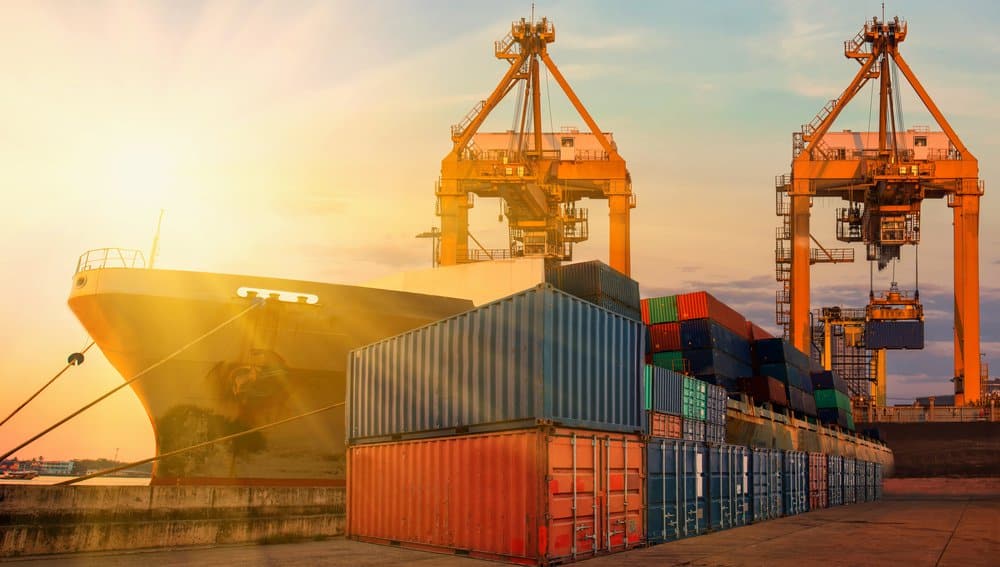A big word in the transportation and shipping world is “digitalization.”
This creates an opportunity for a certain part of the industry to justify comments like “how containerized shipping has been left 20-30 years behind” while other industries like retail, travel, etc. are already way ahead.
Looking from the containerized transportation angle, I believe as an industry we are being under-rated. Why?
If you look at a company like MTS Logistics, through the MTS import platform, we can have our customers pre-book an order, confirm a schedule from multiple carrier options using their computers/phones, have full milestone visibility, get their documents online, and get reports per each supplier, port, finance, and other customized information.
So, if we can currently do things online with one click, why keep on saying we can bring more value through digitalization? I am not talking about carriers, ports, and freight forwarders digitalizing their internal processes – that is something everyone is already doing, since efficiency is the key.
With what I am focusing on, the word “digitalization” is used in a way that it means “have much less people and have more computers to communicate with end customers and automate things.” Don’t get me wrong, I love those presentations and the flow of cargo and information through different systems flawless in a perfect logistics world which may be there in 50 years. But in my time in logistics over 18 years, I didn’t have a single day like that.
The question is, if we’re not in such a perfect environment, should we really rely on technology and eliminate people that fast for customer service and problem solving? Or, should we have a better focus on how to balance both?
Are customers losing time because they don’t have access to timely information on a single platform, don’t get rates fast enough, don’t make bookings faster, and don’t have their documents real time? Or, do they already have those tools, but have much different problems?
Here are my major concerns on how to integrate digitalization with servicing end clients.
- Territorial Challenges: As of today, there is lack of trucking power in U.S. – apparently, we have a generation of truckers missing. How do we tackle that problem? Is it about streamlining information better or building up relationships with vendors/customers and making things personal rather than robotic? If digitalization works that great, why are the most digitalized ocean carriers stepping away from the trucking business in the U.S.? And here we are, talking about a developed country, the U.S. How about South America, Africa, and other major export/import markets and their regional issues?
- Planning: When one of the largest ocean carriers tries a system with a retail giant on how blockchain works, I really do expect things to go smoothly. That’s because that retailer is already connected with their suppliers and has contracts/penalty clauses in place, so everyone is pretty much on their toes to make things timely. However, does this really apply to a smaller retailer? Don’t they need someone to act as the eyes and ears of the importer in Asia, push suppliers to get things moving, and let them know what is really going on? One of the major roles of a freight forwarder is to take that role on behalf of the buyer at their origin side. From a trader point of view, we work with a few of the largest U.S. traders, and they struggle to have even three weeks advanced forecast. It’s not because they don’t have the technology in place to see and control their orders and inventory. Their challenge is that they need to consider rail car arrivals, packaging, trucking, equipment, and carrier space. It all starts with an order. How is technology going to help this shipper if the U.S. railroad system is just not ready for a busy season, the packager doesn’t have enough capacity, or ocean carriers are full? Can these traders really fix these issues with better visibility/information, or you need flexible people with technology and communication within each piece of the chain to handle these issues?
- Government-Related Inefficiencies: Have you ever shipped cargo to Brazil, Nigeria, Turkey, or even China? Do you understand government-related inefficiencies and problems, such as: can a person on a website’s chat window really help from an outsourced office, or you need real, local people?
- Automated/Outsourced Customer Service: In the past 10 years, we have already experienced web-based operations from ocean carriers. If you are not a client with an assigned customer service representative, you are pretty much required to do things on the web, or through people you are speaking to for the first time that do not know/understand your business/concerns. You receive emails to your questions in an automatic format without a name. If your $100,000 product is stuck at a transshipment port, would you really like to get an email from an undisclosed named person (or not even a person) with no phone number?
From my perspective, these are very exciting times on how we can do things through technology. It works perfectly in many industries. Personally, I don’t go out shopping anymore, don’t get a yellow cab, or make a reservation by phone. And, I know technology is really “cool.”
For the logistics industry, I believe that we already came a long way, and we should be careful not over digitalizing.
I believe there are many companies in our industry who balanced this in great fashion. They are not tech-savvy companies, but companies who understand the real day-to-day needs of clients and develop technology solutions for those targeted challenges.




